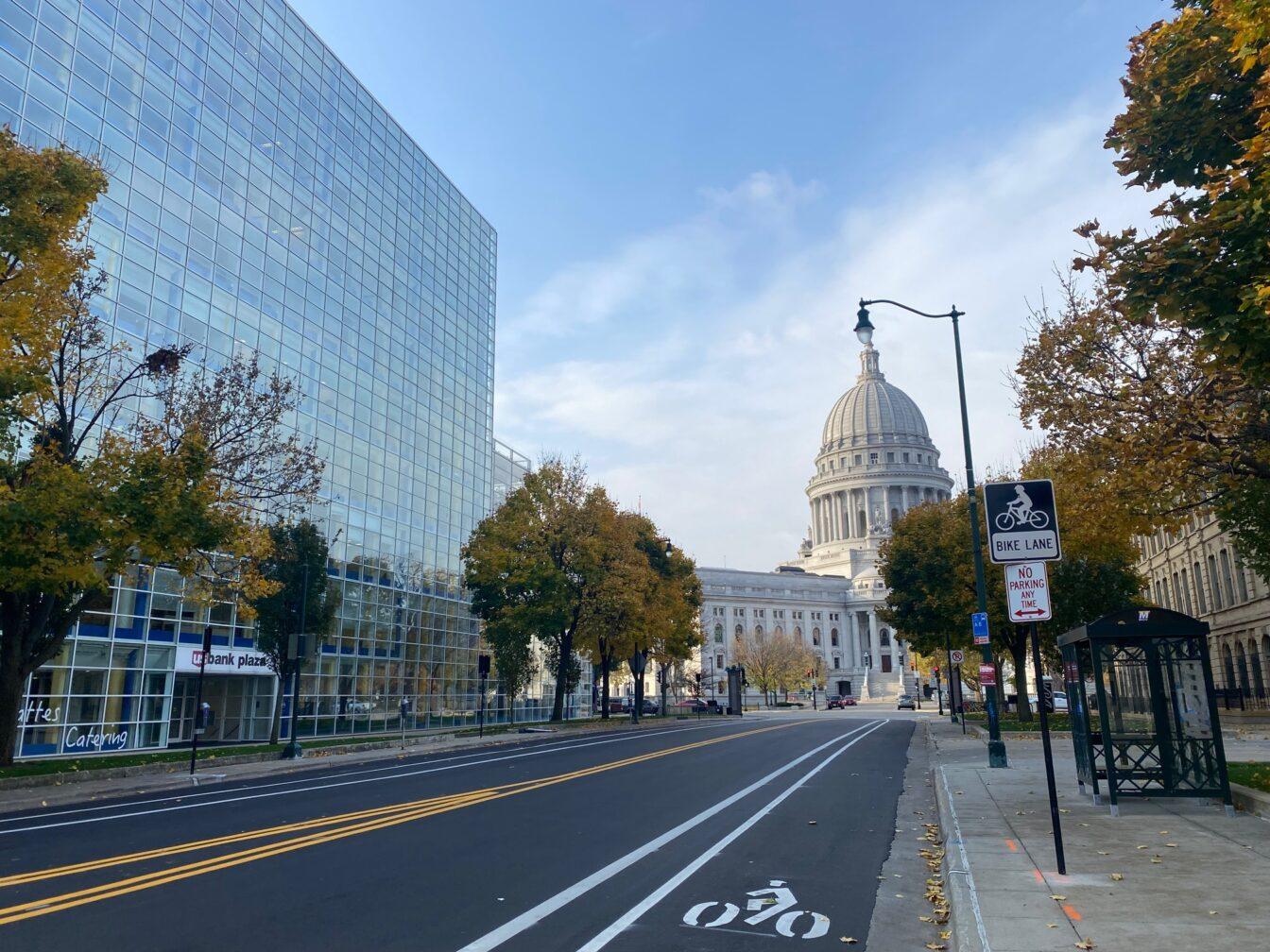Wisconsin Attorney General Josh Kaul announced Oct. 19 that the Wisconsin Anti-Human Trafficking Task Force has received a $2 million dollar grant from the U.S. Department of Justice Office for Victims of Crime, according to a press release.
WAHTTF originally began in 2020 and is a collaboration between law enforcement and victim services providers for the purpose of improving victim-focused and trauma-informed responses to human trafficking in Wisconsin, according to the Office for Victims of Crime.
“Building effective partnerships between law enforcement and victim service providers strengthens our ability to fight human trafficking,” Kaul said in the release.
The grants will allow WAHTTF to stay active for an additional three years and expand membership to additional law enforcement, victim service providers, community organizations, government bodies and tribal organizations starting in 2024, according to the press release.
Gov. Tony Evers launches task force researching role of AI on Wisconsin workforce
WAHTTF is partnering with three new victim service providers in Wisconsin — Family Advocates Inc. in Platteville, Convergence Resource Center in Milwaukee and American Indians Against Abuse in Hayward, according to the press release.
Founder of trafficking awareness non-profit 5-Stones Dodge County Tracy Scheffler is a member of the Madison Anti-Trafficking Consortium where she works with law enforcement. Collaboration between law enforcement and victim service providers has changed the standard response to cases of human trafficking, Scheffler said.
“What I have seen through these years in regard to collaboration has been amazing,” Scheffler said. “There’s a vast difference from a decade ago in how we approach especially with law enforcement the issue of trafficking, whereas the old way was to criminalize the victim because they would have been known as a prostitute, the new way is to criminalize the trafficker which is exactly as it should be.”
Project Respect, an anti-trafficking organization based in Madison, is the central victim service provider for WAHTTF, according to the OVC. WAHTTF served 85 victims of sex trafficking and 12 victims of labor trafficking in 2020-21, 110 victims of sex trafficking and five victims of labor trafficking in 2021-22 plus 61 victims of sex trafficking and 10 victims of labor trafficking from March 2022 to September 2023.
Since 2007, Wisconsin has experienced 796 cases of human trafficking totaling 1,640 victims, according to the National Human Trafficking Hotline. Wisconsin has a prevalent human trafficking issue which is mainly centered around Milwaukee, Scheffler said.
“There is a real trafficking issue everywhere in Wisconsin because it’s been reported in every county — all 72 counties,” Scheffler said. “Our proximity to Milwaukee is absolutely a factor in keeping us [Wisconsin] higher up on the list of which states have trafficking problems.”
Milwaukee law enforcement reported 77 victims of sex trafficking aged 12 to 17 from 2010-12, according to a 2013 report from the Milwaukee Homicide Review Commission. The youth affected were mostly African American girls living on the north side of Milwaukee, according to the report.
Milwaukee law enforcement reported 340 victims ages 25 and under from 2013-16, according to a 2018 MHRC report, 65% of which were Black women.
Relative to other U.S. cities, Milwaukee consistently ranked in the top five for most sex trafficking victims recovered from 2014-18, according to Urban Milwaukee.
Outside of Milwaukee, human trafficking is also an issue in rural counties of Wisconsin, Co-Executive Director at Hope House of South Central Wisconsin Jaime Sathasivam said.
“Hope House serves Sauk, Columbia, Juno, Marquette and Adams counties, and I would say that just like everywhere — whether we want to see it or not — human trafficking is a pretty prevalent issue in our area,” Sathasivam said. “We’re along that highway corridor and anywhere where you’re on a highway, a prevalent connector between states, you’re going to see some different types of human trafficking that are associated with truckers and truck stops.”
Evers files lawsuit against Republican legislature, following withholding of UW employee pay raises
Hope House provides shelter-based support to victims of human trafficking at their Baraboo facility, Sathasivam said. Other services include community advocacy in the form of assisting victims in seeking out legal resources, counseling support and obtaining forensic medical exams.
Organizations like Hope House are important for victims to begin the healing process and move toward stabilization, Sathasivam said. But these organizations are facing funding and community awareness issues.
“If the funds aren’t there, then organizations like Hope House don’t have the employees,” Sathasivam said. “That really is the primary way in which we meet the needs of people who have been trafficked, it’s having supportive employees who can help with that trauma response. There is also a lack of awareness. Just in general, people not recognizing the ways in which human trafficking is existing around them.”
Another issue human trafficking victim service providers are facing is the lack of specialized initiatives, Scheffler said. Previous government funding has been granted to organizations that deal with overarching forms of violence, despite the uniqueness of human trafficking requiring more specialized resources.
“It’s part of the same problem, violence and sexual assault,” Scheffler said. “But it’s such a compound layered trauma that we really do need to have resources that are specializing and specific to the restoration of trafficking victims. So I see this money [WAHTTF funding] helping law enforcement to continually gain knowledge in what’s happening in trafficking.”












